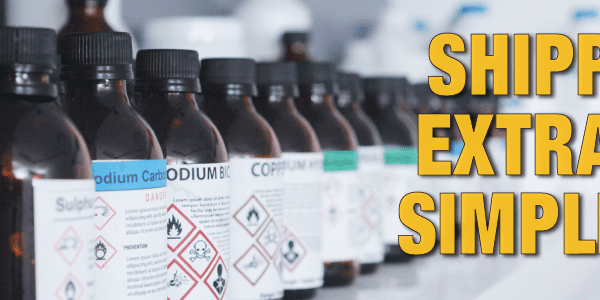Lithium Batteries, Placards, and SDS in the Workplace
Welcome back to the Regulatory Helpdesk where we answer your dangerous goods & hazmat questions. We’re here to help you become independent with – and understand the whys and hows – of the regulations.
Lithium Batteries (Air)
- Q. For PI 967 in IATA is the weight limit the weight of the equipment and battery inside of it or just the battery.
- A. For all battery packing instructions in IATA it is always the weight of the battery itself.
Lithium Batteries (IMDG)
- Q. Do “excepted” batteries require segregation from limited quantity packages under IMDG?
- A. Under IMDG §3.4.4.2 it tells you that segregation requirements in Chapters 7.2 – 7.7 plus any information on Stowage in column 16b of the table do not apply to goods in limited quantity packages. Lithium ion batteries do not yet need segregation under IMDG either. It is only IATA that has implemented segregation this year as part of the packing instructions for shippers. IATA has also added batteries to the segregation table for operators, but it isn’t mandatory until next year and only applies to those in Section 1A and 1B not Section II.
Placards (TDG)
- Q. Customer asked if his Class 8 material (UN 1830) needed to have a UN number on the placard if shipping 1 liter per package and 7 per tote for a total of 17 Liters for the shipment in Canada. Thes carrier requires a placard regardless if one is needed or not.
- A. If he were to placard, a UN number would not be required because the ERAP index is not met (3000 L) in this case.
Safety Data Sheets in the Workplace
- Q. Is their some type of criteria or “rule of thumb” that we can use to determine what types of products require us to have an SDS readily available to our employees?
-
A. It is a bit complicated, to answer your question. Generally, if you have a ‘hazardous’ chemical being used in your workplace, you need to have an SDS for it.
There are several exclusions in the OSHA Hazcom standard, but some of these exclusions are only partial ones for labeling.
A couple of the exclusions are for articles (manufactured item formed to a specific shape or design, which has an end use dependent on that shape/design, and which doesn’t release hazardous chemicals with normal use … think fluorescent tubes for lights), some drugs, some cosmetics, and consumer products (ie. something you would buy at Home Depot off the shelf).
For consumer products in particular, if the product is labeled according to US Consumer product safety rules, but it is used more frequently by one of your employees, than it is intended to be (e.g., Windex is generally used at home for a couple hours on one day, then put away and used a few days or even weeks later. A janitor, for example, could be using the Windex for several hours per day, every day making their frequency of use higher than what the home usage would be) … an SDS would be required.
This could be where your office supplies question lies. Paper, for example, likely wouldn’t be considered hazardous. But a printing ink cartridge that you bought for example, may be hazardous. So whether or not you require a SDS for that printer cartridge, depends on frequency of use of your employees. Do they use it more frequently than its intended to be?
For drugs and cosmetics (your question about hand sanitizers, and soaps), if the products are not intended just for personal consumption at the workplace (i.e., an employee brought a small bottle of their own hand sanitizer to work and it is ONLY for that person’s own use), then you will likely require an SDS for those products too.
Drugs/drug products are only exempt from requiring SDS when they are in solid, final form for direct administration to a patient (e.g. tablets/pills), which are packaged for sale in a retail establishment (e.g. over the counter Tylenol cold packages, or liquid cough syrup that are going to be sold at a general drug store), or drugs intended for personal consumption while at work (e.g. first aid supplies). Cosmetics are only exempt from SDS requirements when they are packaged for retail sale, or when they are for an employee’s own use.






 ICC USA
ICC USA ICC Canada
ICC Canada